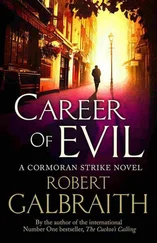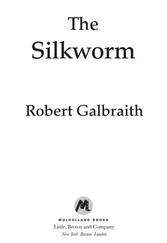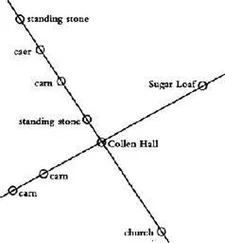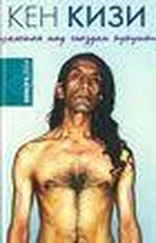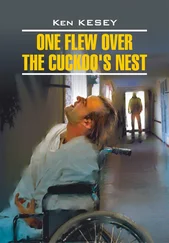“Can you remember what the repairman looked like? You said he was new?”
“Really young guy. Hair to here.”
Wilson indicated the base of his neck.
“White?”
“Yeah, white. Didn’t even look like he was shaving yet.”
They had reached the front door of Flat Three, once the home of Lula Landry. Robin felt a frisson of something—fear, excitement—as Wilson opened the third smoothly painted white front door, with its glassy bullet-sized peephole.
The top flat was architecturally different from the other two: smaller and airier. It had been recently decorated throughout in shades of cream and brown. Guy Somé had told Strike that the flat’s famous previous inhabitant loved color; but it was now as impersonal as any upmarket hotel room. Strike led the way in silence to the sitting room.
The carpet here was not lush and woolen as in Bestigui’s flat, but made of rough sand-colored jute. Strike ran his heel across it; it made no mark or track.
“Was the floor like this when Lula lived here?” he asked Wilson.
“Yeah. She chose it. It was nearly new, so they left it.”
Instead of the regularly spaced long windows of the lower flats, each with three separate small balconies, the penthouse flat boasted a single pair of double doors leading on to one wide balcony. Strike unlocked and opened these doors and stepped outside. Robin did not like watching him do it; after a glance at Wilson’s impassive face, she turned and stared at the cushions and the black-and-white prints, trying not to think about what had happened here three months previously.
Strike was looking down into the street, and Robin might have been surprised to know that his thoughts were not as clinical or dispassionate as she supposed.
He was visualizing someone who had lost control completely; someone running at Landry as she stood, fine-boned and beautiful, in the outfit she had thrown on to meet a much-anticipated guest; a killer lost in rage, half dragging, half pushing her, and finally, with the brute strength of a highly motivated maniac, throwing her. The seconds it took her to fall through the air towards the concrete, smothered in its deceptively soft covering of snow, must have seemed to last an eternity. She had flailed, trying to find handholds in the merciless empty air; and then, without time to make amends, to explain, to bequeath or to apologize, without any of the luxuries permitted those who are given notice of their impending demise, she had broken on the road.
The dead could only speak through the mouths of those left behind, and through the signs they left scattered behind them. Strike had felt the living woman behind the words she had written to friends; he had heard her voice on a telephone held to his ear; but now, looking down on the last thing she had ever seen in her life, he felt strangely close to her. The truth was coming slowly into focus out of the mass of disconnected detail. What he lacked was proof.
His mobile phone rang as he stood there. John Bristow’s name and number were displayed; he took the call.
“Hi, John, thanks for getting back to me.”
“No problem. Any news?” asked the lawyer.
“Maybe. I’ve had an expert look at Lula’s laptop, and he found out a file of photographs had been deleted from it after Lula died. Do you know anything about that?”
His words were met by complete silence. The only reason Strike knew that they had not been cut off was that he could hear a small amount of background noise at Bristow’s end.
At last the lawyer said, in an altered voice:
“They were taken off after Lula died?”
“That’s what the expert says.”
Strike watched a car roll slowly down the street below, and pause halfway along. A woman got out, swathed in fur.
“I—I’m sorry,” Bristow said, sounding thoroughly shaken. “I’m just—just shocked. Perhaps the police removed this file?”
“When did you get the laptop back from them?”
“Oh…sometime in February, I suppose, early February.”
“This file was removed on March the seventeenth.”
“But—but this just doesn’t make sense. Nobody knew the password.”
“Well, evidently somebody did. You said the police told your mother what it was.”
“My mother certainly wouldn’t have removed—”
“I’m not suggesting she did. Is there any chance she could have left the laptop open, and running? Or that she gave somebody else the password?”
He thought that Bristow must be in his office. He could hear faint voices in the background, and, distantly, a woman laughing.
“I suppose that’s possible,” said Bristow slowly. “But who would have removed photographs? Unless…but God, that’s horrible…”
“What is?”
“You don’t think one of the nurses could have taken the pictures? To sell to a newspaper? But that’s a dreadful thought…a nurse…”
“All the expert knows is that they were deleted; there’s no evidence that they were copied and stolen. But as you say—anything’s possible.”
“But who else—I mean, naturally I hate to think it could be a nurse, but who else could it be? The laptop’s been at my mother’s ever since the police gave it back.”
“John, are you aware of every visitor your mother’s had in the last three months?”
“I think so. I mean, obviously, I can’t be sure…”
“No. Well, there’s the difficulty.”
“But why—why would anyone do this?”
“I can think of a few reasons. It would be a big help if you could ask your mother about this, though, John. Whether she had the laptop running in mid-March. Whether any of her visitors expressed an interest in it.”
“I—I’ll try.” Bristow sounded very stressed, almost tearful. “She’s very, very weak now.”
“I’m sorry,” said Strike, formally. “I’ll be in touch shortly. ’Bye.”
He stepped back from the balcony and closed the doors, then turned to Wilson.
“Derrick, can you show me how you searched this place? What order you looked in the rooms that night?”
Wilson thought for a moment, then said:
“I come in here first. Looked around, seen the doors open. Didn’t touch ’em. Then,” he indicated that they should follow him, “I looked in here…”
Robin, following in the two men’s wake, noticed a subtle change in the way that Strike was talking to the security man. He was asking simple, deft questions, focusing on what Wilson had felt, touched, seen and heard at each step of his way through the flat.
Under Strike’s guidance, Wilson’s body language started to change. He began to enact the way he had held the doorjambs, leaning into rooms, casting a rapid look around. When he crossed to the only bedroom, he did it at a slow-motion run, responding to the spotlight of Strike’s undivided attention; he dropped to his knees to demonstrate how he had looked under the bed, and at Strike’s prompting remembered that a dress had lain crumpled beneath his legs; he led them, face set with concentration, to the bathroom, and showed them how he had swiveled to check behind the door before sprinting (he almost mimed it, arms moving exaggeratedly as he walked) back to the front door.
“And then,” said Strike, opening it and gesturing Wilson through, “you came out…”
“I came out,” agreed Wilson, in his bass voice, “an’ I jabbed the lift button.”
He pretended to do it, and feigned pushing open the doors in his anxiety to see what was inside.
“Nothing—so I started running back down again.”
“What could you hear now?” Strike asked, following him; neither of them were paying any attention to Robin, who closed the flat door behind her.
“Very distant—the Bestiguis yelling—and I turn round this corner and—”
Читать дальше

